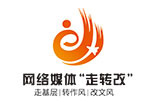Cautious approach marks equity funds as investors go short in A-share market
By WU YIYAO (China Daily) Updated: 2016-05-16 09:13Fund managers have been taking short positions in the A shares, statistics show.
This suggests they are selling such equities now with the expectation that their prices will likely fall, when they would buy them back at a lower price.
This cautious approach follows the benchmark stock market index's lingering below 3,000 points. The situation may persist until the A-share market sentiment improves to signal a recovery.
According to data of Heng Tang Wealth Ltd, a financial services information provider, equity funds in China have been stripping their portfolios of A shares. In fact, equities account for only 10 percent of some private funds' portfolios now.
Data released by Royal Flush Information Network Co Ltd showed among the 639 equity funds it monitors, 259 have reported losses by May 11, and 77 reported a zero yield.
Many factors have influenced the A-share market sentiment, including some negative forecasts on currency exchange rates, and weakened anticipation of an equity market recovery, following a surge in February that boosted share prices of some growth-oriented companies by as much as 50 percent.
The runaway rise left little room for them to grow further, according to a research note from Golden Eagle Fund Management Co Ltd.
According to Wang Zhe, investment researcher with Golden Eagle Fund Management Co Ltd, the economy needs more drivers given the current slowing growth.
"After the economic recovery in the first quarter, the macro picture is yet to be lightened up by consistent, further growth. The equity market needs more drivers and forces to forge ahead," said Wang.
Despite equity funds' propensity to go short, some sectors in the A-share market are still able to attract some investors. The latter are going against the general trend as they think some sectors still have great potential for growth, said a research note by Xin Hu Wealth Management Ltd.
"Electronics, healthcare, pharmaceuticals, entertainment and services are among the most popular sectors for fund managers as public funds are allocating most capitals on shares in these sectors," the Xin Hu note said.
Among these sectors, electronics, healthcare and pharmaceuticals are supported by the nationwide campaign to accelerate supply-side reforms. Also, consumers have been trading up for higher living standards. Booming entertainment and services sectors are a natural result of shifting economic growth patterns, the research note said.
For investors of open-ended equity funds, growth opportunities may lie in some sectors that benefitted from a recovery in economic growth in the first quarter, particularly those related to day-to-day consumption, such as food and beverages, said analysts.
According to Shanghai-based WIND Information Technology Co Ltd, 14 companies listed in Shanghai and Shenzhen, which have been included in the "Chinese white liquor (baijiu) sector", reported average share price growth of 2.01 percent last week, with the best-performing ones gaining more than 5 percent.
Sectors at the top of the cyclical growth pattern, such as pork, dairy and other agricultural products, may also show a great potential for growth.
As many as 16 companies listed in Shanghai and Shenzhen, which have been included in the "pork and meat processing sector", reported average share price growth of 5.03 percent last week, with the best-performing ones gaining more than 10 percent.
A report from Shenzhen-based Bosera Fund Management Co Ltd recommended investors buy shares of white liquor (baijiu) makers. For, of the some 160 sectors, they have been among the top 10 sectors that saw the highest growth rate in share price for three consecutive weeks.
Similarly, shares of food and tourism companies are worth investors' attention, it said.
- Bordeaux + braised pork = Bliss
- Chinese economy showing continued improvement in restructuring
- Chinese help revive local businesses in Egypt
- Trains linking China, Europe on the fast track for growth
- Argentina targets Chinese oenophiles
- Arming Chinese firms with analytics
- Chinese executive who is the soul of Vietnam rail project
- Correction pressure on small stocks looks likely

















